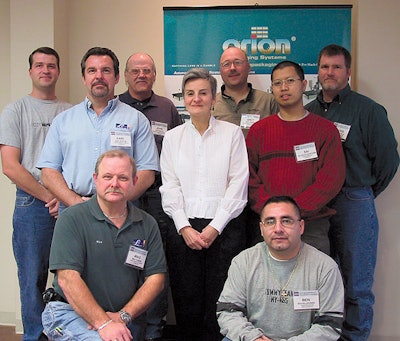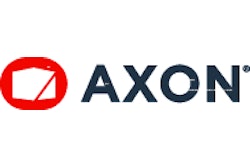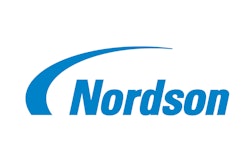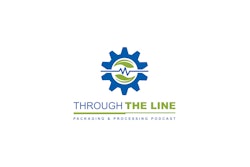Regardless of make, model, or level of complexity, few packaging machines can ever perform up to their full potential if the people operating and maintaining those machines day after day haven’t been properly trained.
That’s why the Packaging Machinery Manufacturers Institute came up with its Certified Trainer Program a few years back. Focused originally on making sure the proper documentation and training manuals would be delivered with each installation of a new packaging machine, the program has grown considerably. It now runs two days and follows a course book written by Nancy Cobb, president of Partners in Possibilities.
“The course follows a typical capital project,” says PMMI’s Maria Ferrante, director of workforce development. “From quoting to installing to troubleshooting to operating to maintaining, it’s all covered, and all of it with an eye toward how training fits in each step along the way. Once participants complete all the requirements of the course, they earn PMMI Certification. More important, they gain the tools and expertise to help their customers. Ultimately that leads to equipment reliability, because by training people effectively, you truly enhance the reliability of packaging machinery.”
At present, the Certified Trainer Program is aimed primarily at PMMI members. But Ferrante points out that some work with consumer packaged goods companies has also been done.
“Ideally, we’d like to see this grow into more of a partnership effort, where both the CPG company and the PMMI members are trained together,” says Ferrante. “We think there would be great value in that, particularly in terms of shortening startup time.”
Pro Mach, Inc., a consortium of 10 manufacturers who make a wide variety of packaging machinery, is among the OEMs who have sent people through the Certified Trainer Program. Some 60 individuals—service technicians, service managers, and support people like in-house technical writers—have all been certified. According to Pro Mach vice president of human resources Raymond Toth, the course is not only a value-added service to the customer. It’s also hugely beneficial to the professional development of the individuals who go through it, service technicians in particular.
“We rely on the service technician’s ability to perform efficiently with his hands, whether the task is mechanical, electronics, or whatever,” says Toth. “But they need to be trainers, too. This program focuses on ways to organize the training, to make it part of the partnership we want to establish with the customer. It also helps our people document what occurred, who got trained, what they learned. That helps a lot down the road, long after they’ve left the customer’s plant.
“Just as important, the training addresses ‘soft issues.’ What approach do you take to training an adult? How do you train operators who may have literacy issues? How do you deal with a customer where turnover is an issue?
“As for the benefits that accrue to the individual who receives the training, they value the fact that we’ve invested in training them how to train. It’s more than showing them how to turn the wrench or read the meter. It’s an investment in building skills that will have a lasting effect as they grow in their profession.”
Another fan
At Nordson Corp., a maker of adhesive application systems used widely throughout packaging, training supervisor Gary Jones is another big fan of the Certified Trainer Program.
“Before it even got launched I sat in on an advisory board to form such a thing, so when it was launched we jumped right on it,” says Jones. “It’s another tool in the toolbox for field engineers, senior field engineers, and their supervisors. The customer sees the benefit, too. Anheueser-Busch is a good example. They require that when an outside equipment vendor must deliver training at an A-B facility, he first has to be certified through an A-B program. Now, they waive that requirement if the person has PMMI certification.”
At Goodman Packaging Equip-ment, vice president of sales and marketing Bruce Larson believes the Certified Trainer Program went to a whole new level when Cobb, formerly a trainer at Nabisco, entered the picture.
“She’s gotten it to the point where it’s a real value-added proposition that we can bring to our customers,” says Goodman. “We have documented results that show clearly how throughput and uptime are increased when our trainers are PMMI certified.”
The next step, says Larson, is to seek greater customer involvement in the training in a way that would extend the benefits of the training over a longer period of time.
But regardless of how the program evolves in the future, its core benefit is both simple and compelling, says Goodman. “It’s a matter of being proactive rather than reactive.”
To learn more about PMMI’s Certified Trainer Program, visit www.pmmi.org/certified.





























